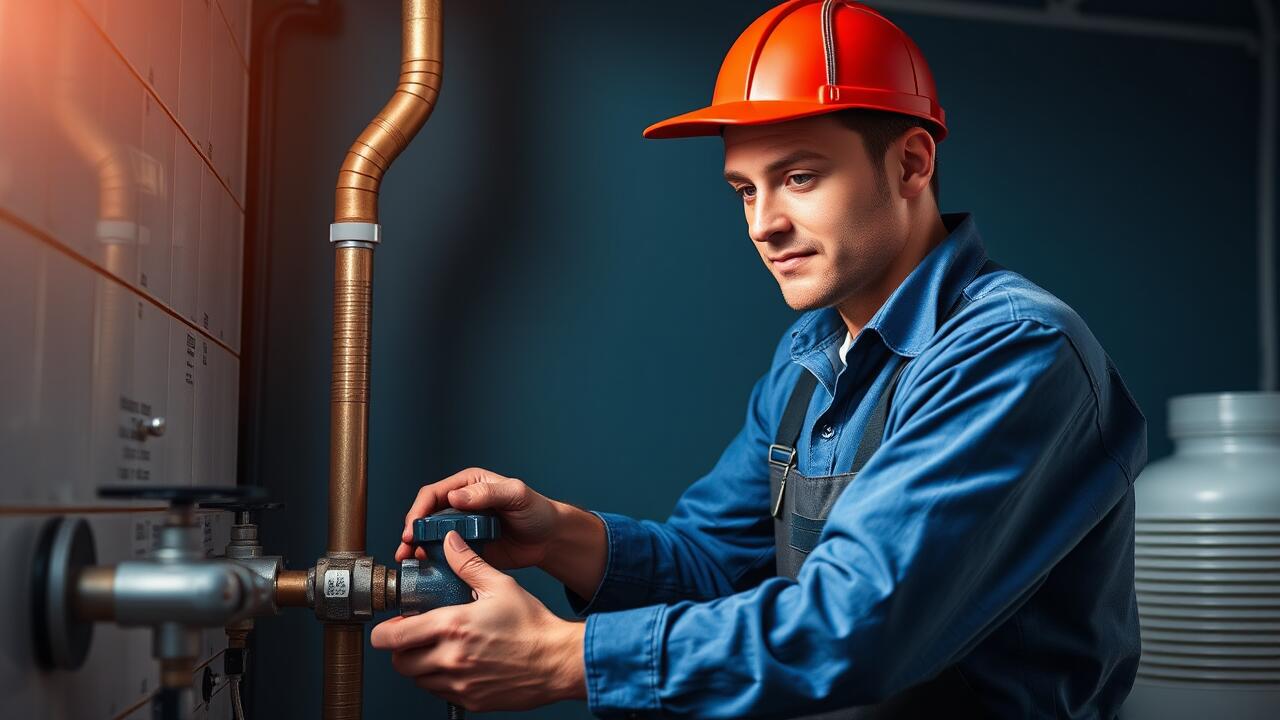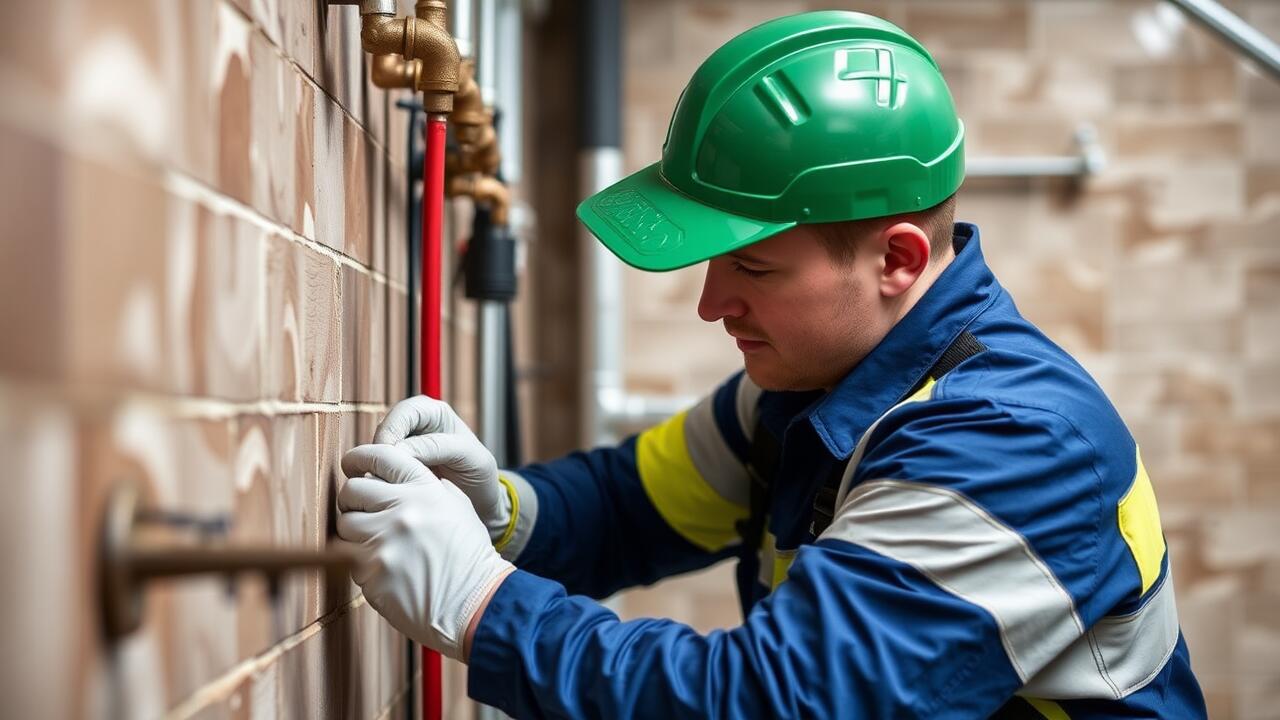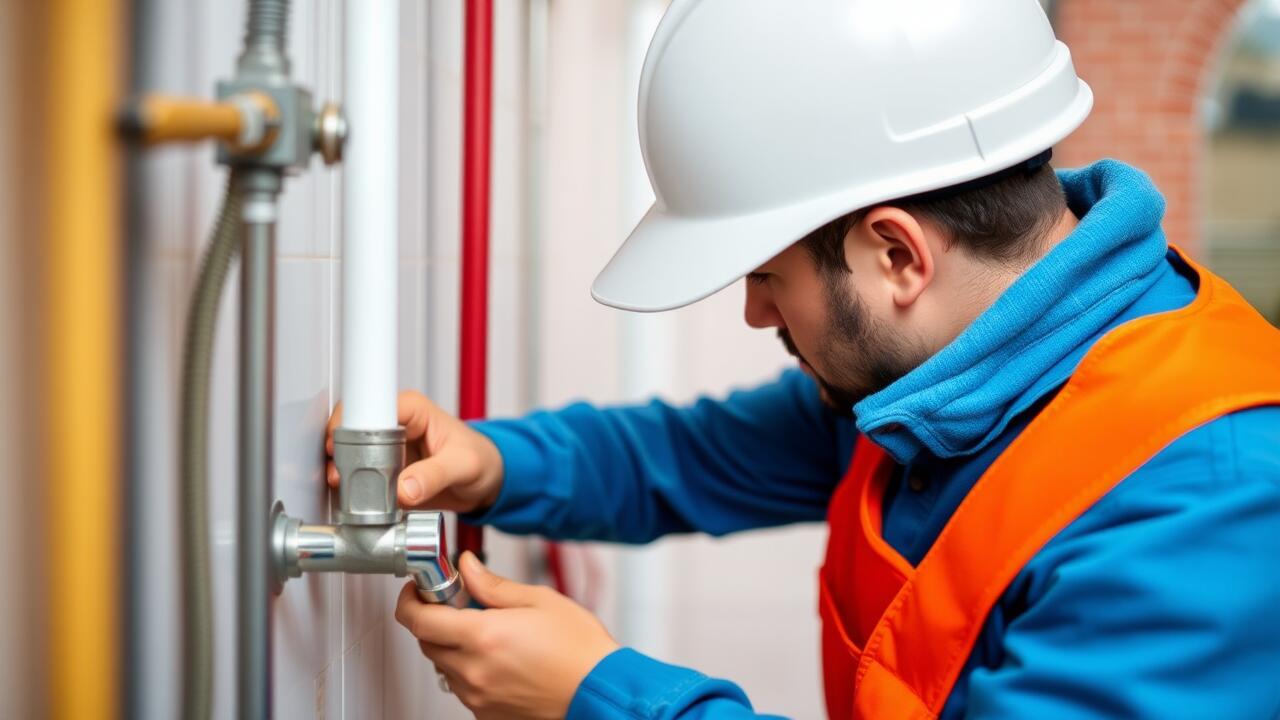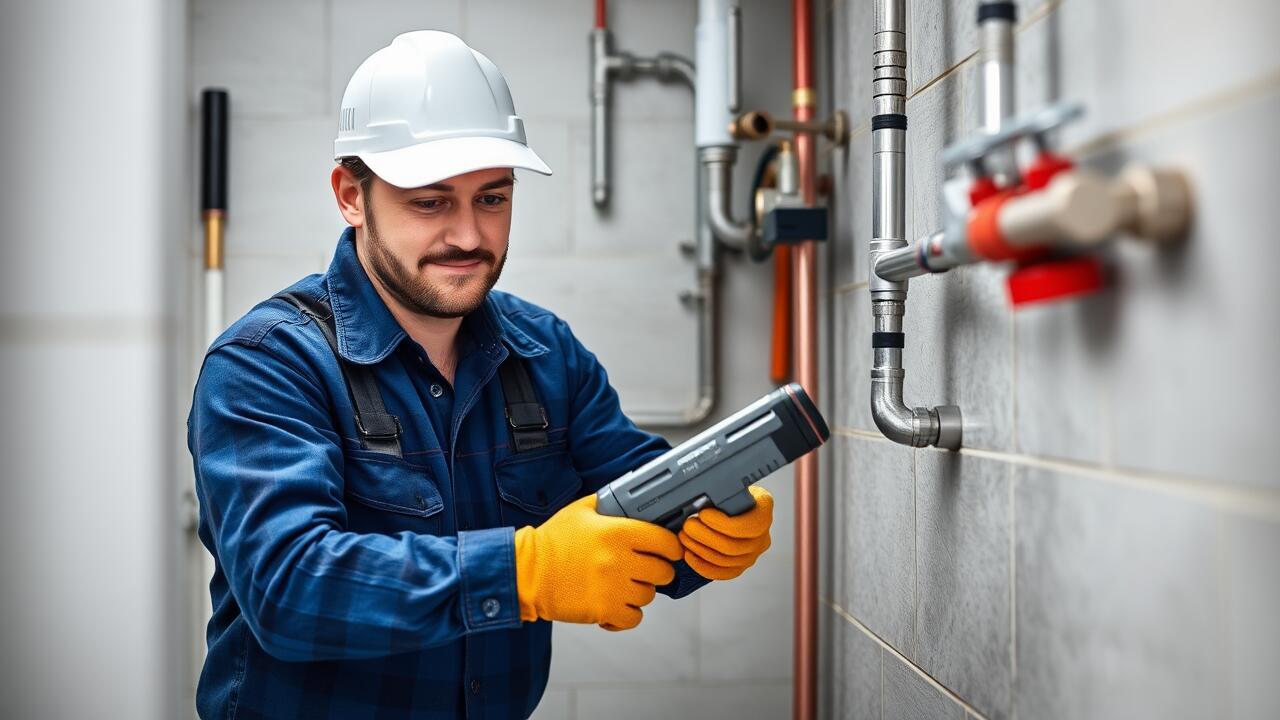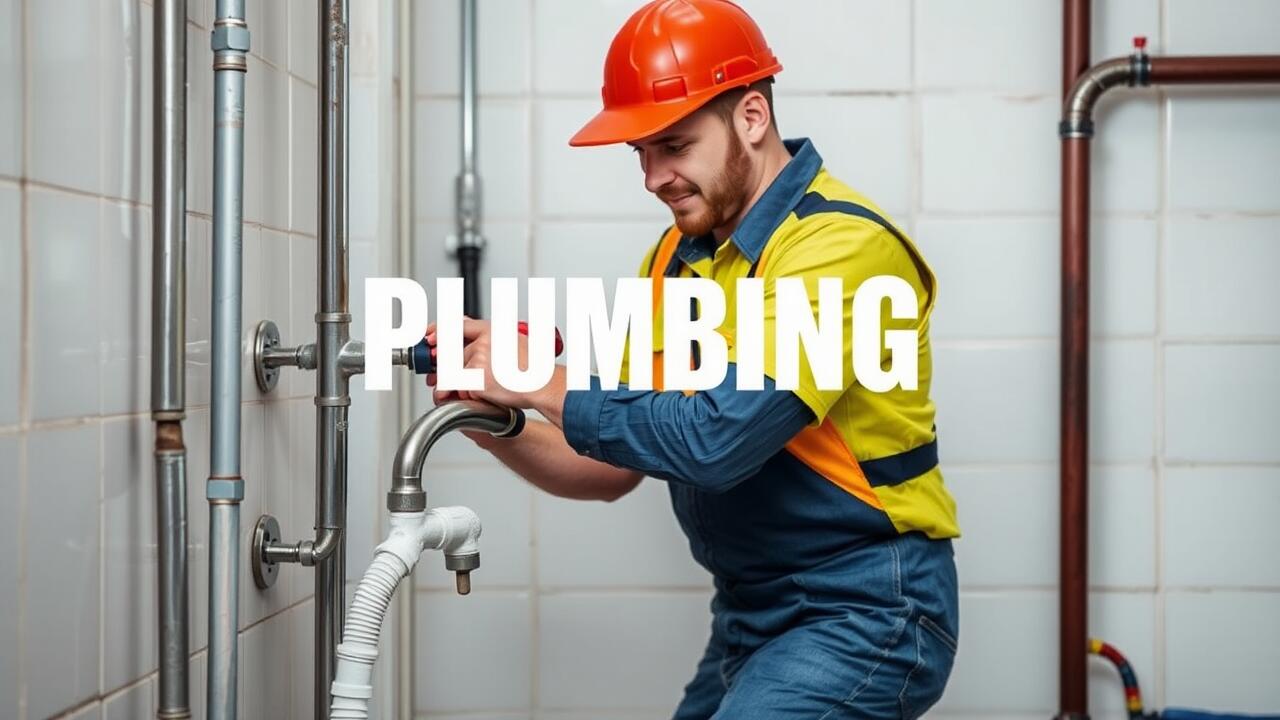
How to Shut Off Your Water Supply
When faced with a plumbing issue, swiftly shutting off your water supply is crucial. Locate your main water valve, often found in the basement, crawlspace, or near the perimeter of your home where the water line enters. Familiarize yourself with its position before an emergency arises. Turning this valve clockwise will stop the flow of water throughout your home, preventing potential flooding and further damage.
In instances where you need immediate assistance or aren't comfortable handling plumbing tasks, searching for "Plumbing near me" can connect you with local professionals. They can provide guidance or take over if necessary. Having the contact information of reliable plumbers can save you time and stress during plumbing emergencies.
Locating and Operating Your Main Valve
Your main water valve is a crucial component of your home's plumbing system. It is typically located near where the water line enters your home, often in basements, crawlspaces, or near exterior walls. In some cases, it may be hidden behind a panel or in a utility closet. Knowing its exact location is essential for emergencies or maintenance. If you're unsure where to find it, local plumbing services can provide guidance or even help locate it for you. Many homeowners search for "plumbing near me" to connect with professionals who can assist.
Once you find the valve, operating it is straightforward. Most valves can be turned by hand, either using a lever or a round wheel. To shut off your water supply, turn the valve clockwise until it stops. Ensuring it is completely shut will help prevent any leaks or water waste during repairs. If the valve feels stuck or rusted, it may require some lubricant or gentle maneuvering. Regular maintenance checks can help keep the valve in good working order, so it operates smoothly when needed.
Choosing the Right Pipes for Repairs
Selecting the right pipe material is essential for effective and long-lasting repairs. PVC is lightweight, resistant to corrosion, and ideal for drainage systems. It is often the go-to choice for homeowners looking to handle minor plumbing projects independently. Copper pipes offer durability and a long lifespan but can be more expensive. PEX has gained popularity for its flexibility and ease of installation, making it suitable for various plumbing needs.
When considering which pipes to use, it's important to factor in your local climate and the specific requirements of your home. For Westwood homeowners, choosing materials that withstand temperature fluctuations can prevent future issues. Searching for “plumbing near me” can yield local experts who can provide valuable insights on the best options for your unique situation. Assessing your needs and the characteristics of each material will help ensure optimal performance of your plumbing system.
Comparing PVC, Copper, and PEX
PVC, or polyvinyl chloride, is a popular choice for many homeowners due to its affordability and ease of installation. It is lightweight, resistant to corrosion, and does not require special tools for cutting and joining. This makes it an ideal option for DIY projects. However, PVC is not suitable for hot water applications and can become brittle under extreme temperatures.
Copper pipes are known for their durability and longevity. They can withstand high temperatures and pressures, making them suitable for both hot and cold water lines. While installation is more labor-intensive and may require soldering skills, copper resists corrosion better than some other materials. On the other hand, PEX (cross-linked polyethylene) is a flexible alternative that provides excellent resistance to scale and chlorine, making it suitable for a range of plumbing applications. As homeowners search for reliable solutions, including options for plumbing near me, it’s essential to consider the specific needs of their projects.
Safety Precautions When Plumbing
Ensuring safety while tackling plumbing projects in your Westwood home is paramount. Always turn off the water supply before beginning any repairs. This step prevents flooding and uncontrolled water flow. Wearing appropriate protective gear, such as gloves and goggles, reduces the risk of injury from sharp tools or hazardous materials. Having a first aid kit nearby can also provide peace of mind in case of minor accidents.
When using tools for plumbing tasks, proper handling is essential. This includes not only using the right tool for the job but also keeping your workspace organized to minimize hazards. For larger projects or unfamiliar repairs, considering professional help could be a wise choice. Searching for "plumbing near me" can connect you with licensed plumbers who can assist with more complex issues, ensuring your home stays safe and functional.
Protecting Yourself and Your Property
When undertaking DIY plumbing tasks, safety should always be a priority. Wearing protective gear, such as gloves and goggles, helps shield against potential hazards like sharp tools or harmful chemicals. Ensure your workspace is well-lit and organized to prevent accidents. Familiarize yourself with the locations of emergency shut-off valves and any tools you may need, which can save valuable time in case of an unforeseen issue. Being prepared can make the difference between a minor inconvenience and a major disaster.
It’s important to also be aware of your surroundings during plumbing work. Clear away any obstacles that could pose risks while you’re focused on your tasks. If you encounter problems beyond your expertise, seeking professional assistance is a wise decision. A quick search for “plumbing near me” can connect you with skilled professionals who can address complex issues effectively. Always remember that prioritizing safety not only protects you but also maintains the integrity of your home.
FAQS
How do I locate my main water shut-off valve?
Your main water shut-off valve is usually found near where the water line enters your home. Check the basement, crawl space, or outside near the foundation of your house.
What are the most common types of pipes used for plumbing repairs?
The most common types of pipes used for plumbing repairs are PVC, copper, and PEX. Each has its own advantages and disadvantages depending on your specific needs.
Is it safe to do plumbing repairs myself?
Yes, it can be safe to do plumbing repairs yourself if you take proper safety precautions, such as turning off the water supply and using the right tools. However, if you're unsure, it's best to consult a professional.
Can I use PVC pipes for hot water lines?
No, PVC pipes are not suitable for hot water lines as they can warp or degrade under high temperatures. For hot water, consider using PEX or copper pipes instead.
What safety precautions should I take when doing plumbing work?
Always turn off the water supply before starting any plumbing work, wear protective gear, ensure proper ventilation if using adhesives or solvents, and never work on plumbing systems under pressure.
